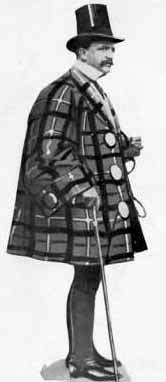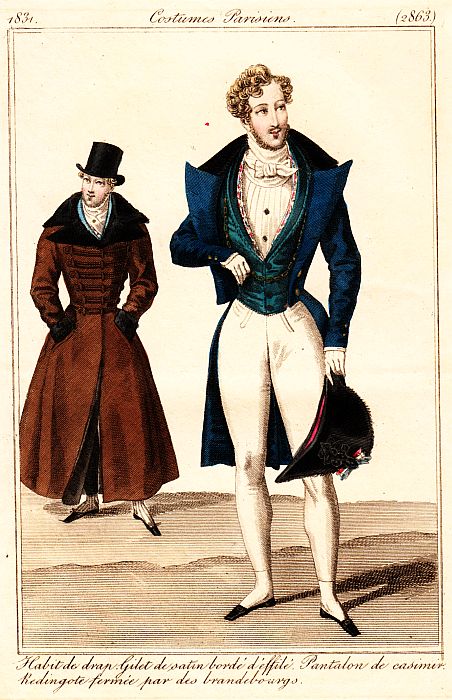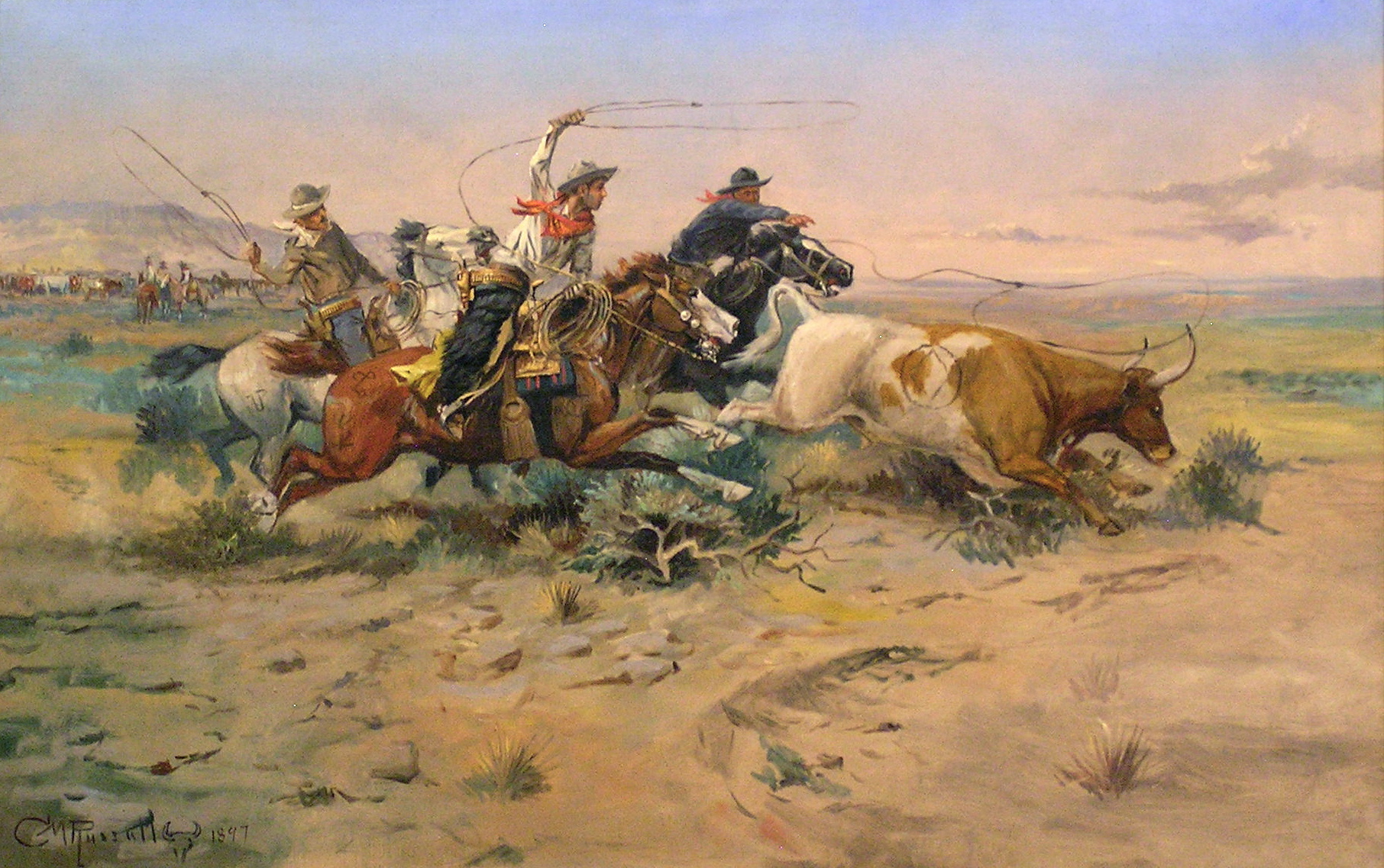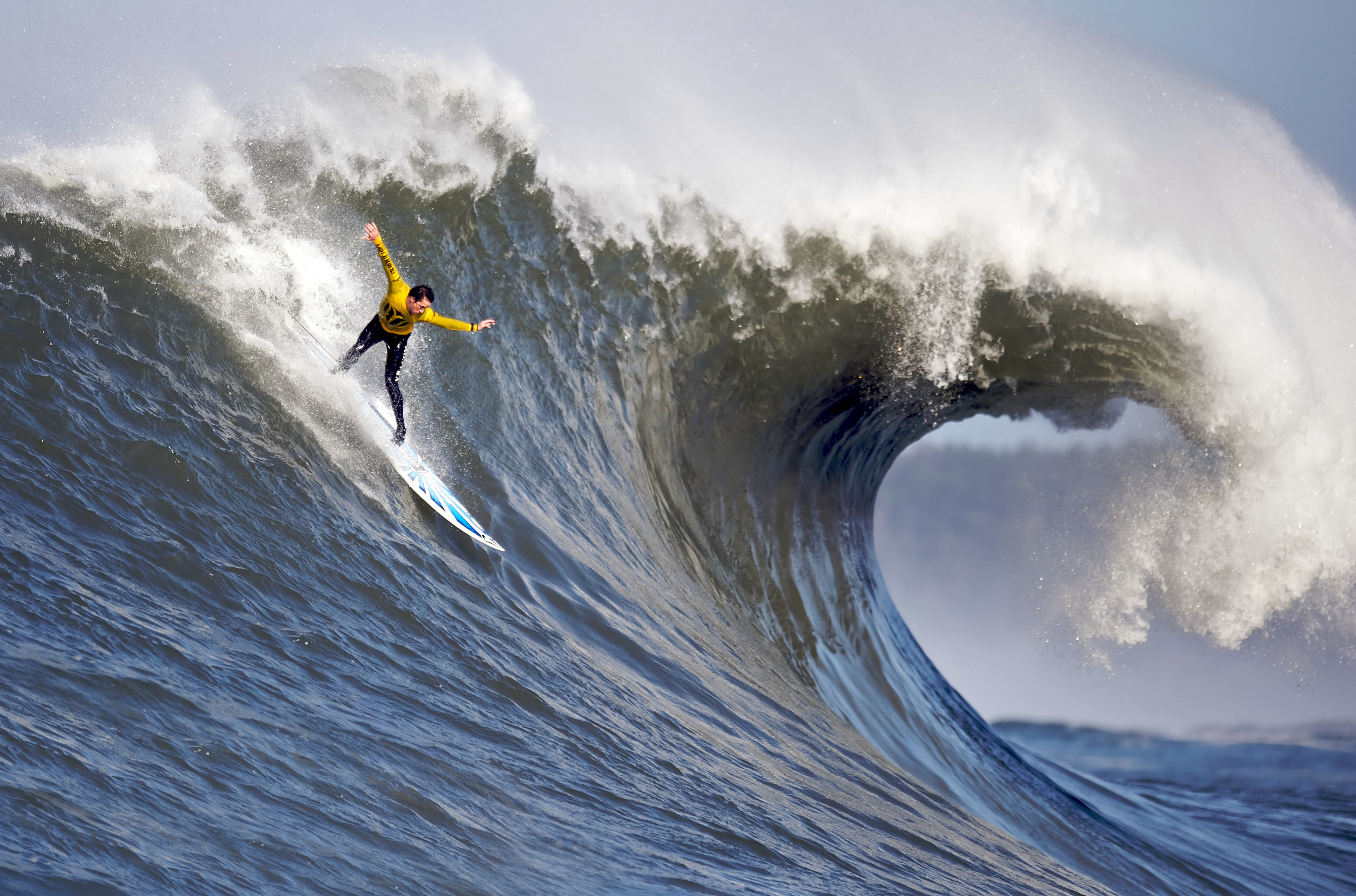|
Dude
''Dude'' is American slang for an individual, typically male. From the 1870s to the 1960s, dude primarily meant a male person who dressed in an extremely fashionable manner (a dandy) or a conspicuous citified person who was visiting a rural location, a " city slicker". In the 1960s, dude evolved to mean any male person, a meaning that slipped into mainstream American slang in the 1970s. Current slang retains at least some use of all three of these common meanings. History The term "dude" may have derived from the 18th-century word "doodle", as in "Yankee Doodle Dandy". In the popular press of the 1880s and 1890s, "dude" was a new word for "dandy"—an "extremely well-dressed male", a man who paid particular importance to his appearance. The café society and Bright Young Things of the late 1800s and early 1900s were populated with dudes. Young men of leisure vied to show off their wardrobes. The best known of this type is probably Evander Berry Wall, who was dubbed "King of ... [...More Info...] [...Related Items...] OR: [Wikipedia] [Google] [Baidu] |
Guest Ranch
A guest ranch, also known as a dude ranch, is a type of ranch oriented towards visitors or tourism. It is considered a form of agritourism. History Guest ranches arose in response to the romanticization of the American West that began to occur in the late 19th century. In 1893, historian Frederick Jackson Turner stated that the United States frontier was demographically "closed". This in turn led many people to have feelings of nostalgia for bygone days, but also, given that the risks of a true frontier were gone, allowed for nostalgia to be indulged in relative safety. Thus, the person referred to as a "tenderfoot" or a " greenhorn" by westerners was finally able to visit and enjoy the advantages of western life for a short period of time without needing to risk life and limb. The dude ranch probably originated in the Dakotas in the mid-1880s, the first recorded ranch was near Medora, North Dakota in 1884 owned by the Eaton brothers, businessmen from Pittsburgh. It was likely ... [...More Info...] [...Related Items...] OR: [Wikipedia] [Google] [Baidu] |
The Big Lebowski
''The Big Lebowski'' () is a 1998 crime comedy film written, produced, and directed by Joel and Ethan Coen. It stars Jeff Bridges as Jeffrey "The Dude" Lebowski, a Los Angeles slacker and avid bowler. He is assaulted as a result of mistaken identity, then learns that a millionaire also named Jeffrey Lebowski ( David Huddleston) was the intended victim. The millionaire Lebowski's trophy wife is kidnapped, and millionaire Lebowski commissions The Dude to deliver the ransom to secure her release; the plan goes awry when the Dude's friend Walter Sobchak (John Goodman) schemes to keep the ransom money for themselves. Sam Elliott, Julianne Moore, Steve Buscemi, John Turturro, Philip Seymour Hoffman, Tara Reid, David Thewlis, Peter Stormare, Jon Polito, and Ben Gazzara also appear, in supporting roles. The film is loosely inspired by the work of Raymond Chandler. Joel Coen stated, "We wanted to do a Chandler kind of story – how it moves episodically, and deals with the ch ... [...More Info...] [...Related Items...] OR: [Wikipedia] [Google] [Baidu] |
Jeff Bridges
Jeffrey Leon Bridges (born December 4, 1949) is an American actor. He has received various accolades throughout his career spanning over seven decades, including an Academy Award and two Golden Globe Awards. Bridges comes from a prominent acting family and appeared on the television series '' Sea Hunt'' (1958–1960) alongside his father, Lloyd Bridges, and brother, Beau Bridges. He received the Academy Award for Best Actor for his performance as an alcoholic singer in the 2009 film '' Crazy Heart''. Other Oscar-nominated roles include '' The Last Picture Show'' (1971), '' Thunderbolt and Lightfoot'' (1974), '' Starman'' (1984), '' The Contender'' (2000), '' True Grit'' (2010), and '' Hell or High Water'' (2016). Bridges has also starred in other roles such as '' The Fabulous Baker Boys'' (1989), '' The Fisher King'' (1991), '' The Big Lebowski'' (1998) and '' Bad Times at the El Royale'' (2018), along with the commercially successful films '' King Kong'' (1976), '' Tron'' ( ... [...More Info...] [...Related Items...] OR: [Wikipedia] [Google] [Baidu] |
Evander Berry Wall
Evander Berry Wall (January 14, 1861 – May 4, 1940) was a New York City socialite and later an American expatriate in France during the Belle Époque and beyond. He was famous for his extravagantly refined look and was crowned "King of the Dudes" in the 1880s. Early life and marriage Evander was the son of Charles Wall and Elizabeth A. Wall. He was the grandson of William Wall, who was mayor of what was then Williamsburgh, New York (now part of New York City) and who developed a prosperous rope making business there in 1830, Wall Rope Works. When Berry was 11, his grandfather died, and Wall Rope Works was then run by Berry's father and his siblings. Unfortunately, Berry's father also died just eight years later in 1879. The 1880 US Census shows Berry living with his widowed mother and his occupation as "cordage manufacturer" at the age of 19. His siblings were James R. Wall and Louise Berry Wall Ladew (Mrs. Edward R. Ladew). Evander was raised as a wealthy New Yorker. At the ... [...More Info...] [...Related Items...] OR: [Wikipedia] [Google] [Baidu] |
Bro (subculture)
Bro culture is a subculture of young people (originally young men, hence "brother culture") who spend time partying with others like themselves. Although the original image of the bro lifestyle is associated with sports apparel and fraternities, it lacks a consistent definition. Most aspects vary regionally such as in California where it overlaps with surf culture. Oxford Dictionaries have noted that bros frequently self-identify with neologisms containing the word "bro" as a prefix or suffix. Etymology and history Bro was originally an abbreviated form of the word brother but began to assume non-familial connotations in the 20th century. In this evolution, it was first used to refer to another man, such as a "guy" or "fellow". In these ways, it was semantically similar to the use of "brother". In the 1970s, bro came to refer to a male friend rather than just another man. The word became associated with young men who spend time partying with others like themselves. Oxford Dictiona ... [...More Info...] [...Related Items...] OR: [Wikipedia] [Google] [Baidu] |
Dandy
A dandy is a man who places particular importance upon physical appearance, refined language, and leisurely hobbies, pursued with the appearance of nonchalance. A dandy could be a self-made man who strove to imitate an aristocratic lifestyle despite coming from a middle-class background, especially in late 18th- and early 19th-century Britain. Previous manifestations of the ''petit-maître'' (French for "small master") and the Muscadin have been noted by John C. Prevost, but the modern practice of dandyism first appeared in the revolutionary 1790s, both in London and in Paris. The dandy cultivated cynical reserve, yet to such extremes that novelist George Meredith, himself no dandy, once defined cynicism as "intellectual dandyism". Some took a more benign view; Thomas Carlyle wrote in ''Sartor Resartus'' that a dandy was no more than "a clothes-wearing man". Honoré de Balzac introduced the perfectly worldly and unmoved Henri de Marsay in '' La fille aux yeux d'or'' (1835), a p ... [...More Info...] [...Related Items...] OR: [Wikipedia] [Google] [Baidu] |
Stampede Pass
Stampede Pass (elevation ) is a mountain pass in the northwest United States, through the Cascade Range in Washington. Southeast of Seattle and east of Tacoma, its importance to transportation lies almost entirely with railroading, as no paved roads cross it. It is approximately south-southeast of Snoqualmie Pass, the gap for and south of Keechelus Lake. The pass, and the tunnel to the south which takes advantage of it, the Stampede Tunnel (), just below played a significant role in the history of the Northern Pacific Railway. The tunnel opened for service in May 1888, and is currently operated by the NP's successor, BNSF Railway. After over a decade of dormancy in the late 20th century, the Stampede Pass Line and Tunnel were reopened in 1997 by BNSF, which uses the route as one of two direct Northern Transcon main lines through the Cascades, between Spokane and the Seattle metropolitan area. Discovery of the pass Northern Pacific Railroad had been notified by the ... [...More Info...] [...Related Items...] OR: [Wikipedia] [Google] [Baidu] |
Cowboy
A cowboy is an animal herder who tends cattle on ranches in North America, traditionally on horseback, and often performs a multitude of other ranch-related tasks. The historic American cowboy of the late 19th century arose from the ''vaquero'' traditions of northern Mexico and became a figure of special significance and legend.Malone, J., p. 1. A subtype, called a wrangler, specifically tends the horses used to work cattle. In addition to ranch work, some cowboys work for or participate in rodeos. Cowgirls, first defined as such in the late 19th century, had a less-well documented historical role, but in the modern world work at identical tasks and have obtained considerable respect for their achievements. Cattle handlers in many other parts of the world, particularly South America and Australia, perform work similar to the cowboy. The cowboy has deep historic roots tracing back to Spain and the earliest European settlers of the Americas. Over the centuries, difference ... [...More Info...] [...Related Items...] OR: [Wikipedia] [Google] [Baidu] |
Surf Culture
Surf culture includes the people, language, fashion, and lifestyle surrounding the sport of surfing. The history of surfing began with the ancient Polynesians. That initial culture directly influenced modern surfing, which began to flourish and evolve in the early 20th century, with its popularity peaking during the 1950s and 1960s (principally in Hawaii, Australia, and California). It has affected music, fashion, literature, film, art, and youth jargon in popular culture. The number of surfers throughout the world continues to increase as the culture spreads. Surfers' desire for the best possible waves to ride make them dependent on conditions that may change rapidly, given the unpredictable nature of weather events and their effect on the surface of the ocean. Because surfing was limited by the geographical necessity of an ocean coastline with beaches, the culture of beach life often influenced surfers and vice versa. '' Surfer Magazine'' was founded in the 1960s when surfi ... [...More Info...] [...Related Items...] OR: [Wikipedia] [Google] [Baidu] |
City Slicker
{{wiktionarypar, city slicker City slicker is an idiomatic expression for someone accustomed to a city or urban lifestyle and unsuited to life in the country. The term was typically used as a term of derision by rural Americans and Canadians who regarded them with amusement. It may refer to a "fop", or it may be a derogatory term for a person wearing inappropriate city-type business attire, particularly with a brusque or condescending attitude in areas where local residents are offended by an arrogant attitude combined with disdain and lack of respect for rural people and lifestyles. The term can be used to describe people who are perceived as dishonest, arrogant, or simply naive. ''City slicker'' was derisively given to people from the urban Eastern United States and Canada when they took on an attitude that their lifestyle and access to the culture of city life gave them superior intelligence. Rural people, particularly those in the west, notably cowboys, often used the pe ... [...More Info...] [...Related Items...] OR: [Wikipedia] [Google] [Baidu] |
Bill And Ted's Excellent Adventure
Bill(s) may refer to: Common meanings * Banknote, paper cash (especially in the United States) * Bill (law), a proposed law put before a legislature * Invoice, commercial document issued by a seller to a buyer * Bill, a bird or animal's beak Places * Bill, Wyoming, an unincorporated community, United States * Billstown, Arkansas, an unincorporated community, United States * Billville, Indiana, an unincorporated community, United States People * Bill (given name) * Bill (surname) * Bill (footballer, born 1978), ''Alessandro Faria'', Togolese football forward * Bill (footballer, born 1984), ''Rosimar Amâncio'', a Brazilian football forward * Bill (footballer, born 1999), ''Fabricio Rodrigues da Silva Ferreira'', a Brazilian forward Arts, media, and entertainment Characters * Bill (''Kill Bill''), a character in the ''Kill Bill'' films * William “Bill“ S. Preston, Esquire, The first of the titular duo of the Bill & Ted film series * A lizard in Lewis Carroll's ''Alice's ... [...More Info...] [...Related Items...] OR: [Wikipedia] [Google] [Baidu] |
Teenage Mutant Ninja Turtles (1990 Film)
''Teenage Mutant Ninja Turtles'' is a 1990 American superhero film directed by Steve Barron from a screenplay by Todd W. Langen and Bobby Herbeck. It is the first film adaptation of Teenage Mutant Ninja Turtles in film, the comic book characters created by Kevin Eastman and Peter Laird. It stars Judith Hoag and Elias Koteas with the voices of Brian Tochi, Robbie Rist, Corey Feldman, and Josh Pais. ''Teenage Mutant Ninja Turtles'' follows the Turtles on a quest to save their master, Splinter (Teenage Mutant Ninja Turtles), Splinter, with their new allies, April O'Neil and Casey Jones (Teenage Mutant Ninja Turtles), Casey Jones, from Shredder (Teenage Mutant Ninja Turtles), the Shredder and his Foot Clan. It adapts the early ''Teenage Mutant Ninja Turtles (Mirage Studios), Teenage Mutant Ninja Turtles'' comics, with several elements taken from the Teenage Mutant Ninja Turtles (1987 TV series), animated series airing at the time. The turtle costumes were developed by Jim Henson's C ... [...More Info...] [...Related Items...] OR: [Wikipedia] [Google] [Baidu] |


.jpg)

.jpg)



